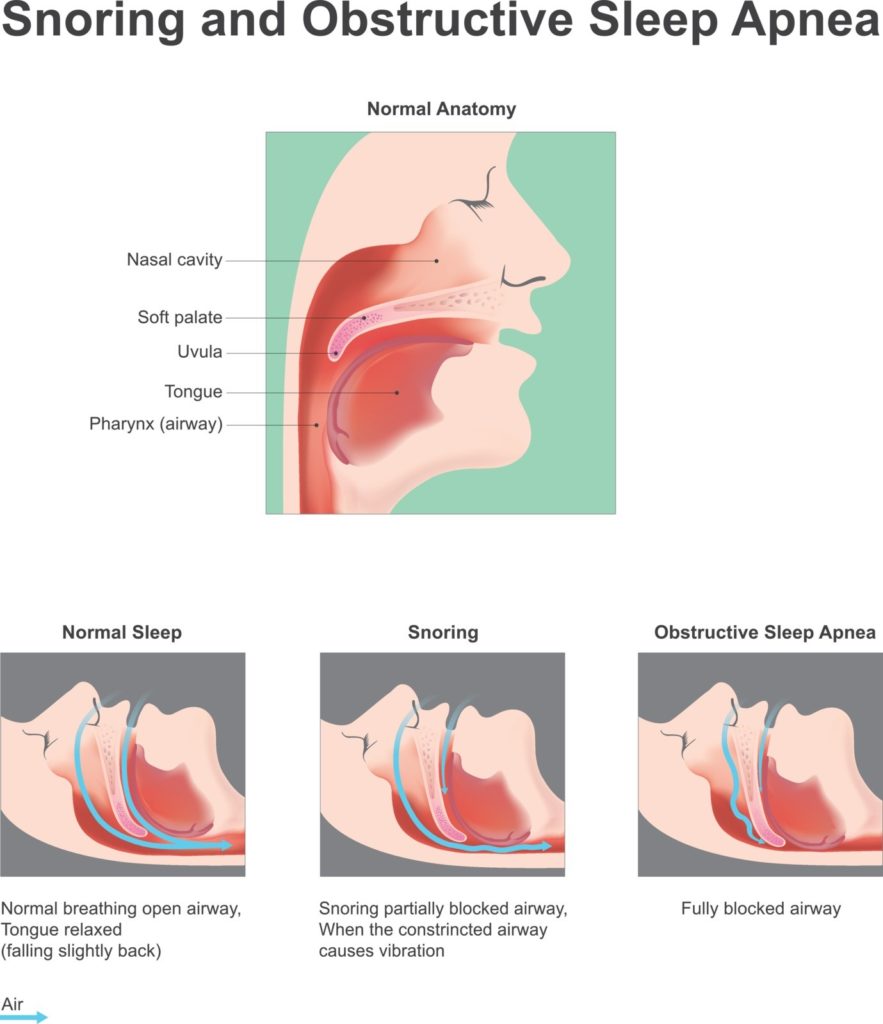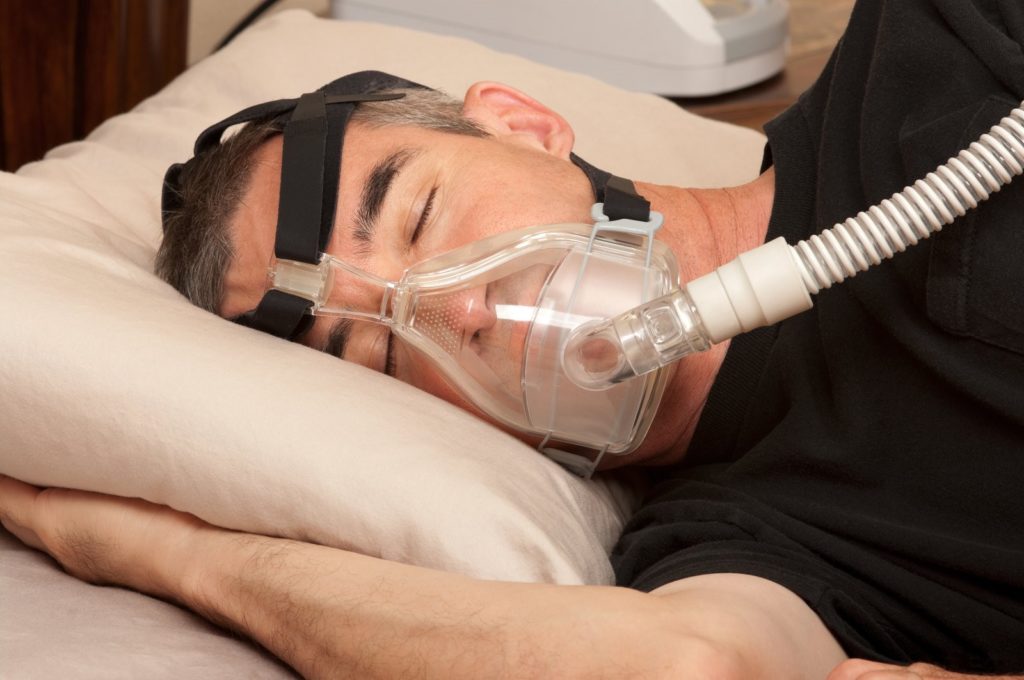Sleep apnea is one of the most serious sleep syndromes that can have long-lasting, and in extreme cases, fatal effects. Essentially sleep apnea is when you stop breathing while you’re sleeping due to a range of neurological or physiological reasons.
Sleep apnea is a lot more common than you may think, which is why you should know whether you’re at risk and what the warning signs for it are.
The Three Types of Sleep Apnea
Type 1: OSA or Obstructive Sleep Apnea is a lot more common than the other types. OSA is caused by an airway blockage, usually when the throat muscles relax so much that they collapse and cause the obstruction.
Type 2: CSA or Central Sleep Apnea is when your brain is unable to communicate with the muscles that control the breath movements causing you to stop breathing multiple times in the night.
Type 3: Complex Sleep Apnea Syndrome is a combination of both OSA and CSA and has been linked to the use of continuous positive airway pressure (CPAP) machines used to help OSA.

Why Sleep Apnea is Dangerous
There’s a tendency to dismiss sleep apnea as harmless, but any medical professional will tell you that it can be dangerous—even fatal in some cases. People who have untreated sleep apnea usually stop breathing multiple times in the night, depriving their brain of oxygen.
This means that your blood pressure is likely to rise as the heart tries to compensate for the lack of oxygen. You may develop a consistent blood pressure issue which can aggravate heart disease and conditions and cause heart attacks or heart failure in extreme cases. This can even cause your brain to stroke out.
You may also experience headaches, more severe ADHD symptoms, and extreme fatigue.
Risk and Symptoms
Some kinds of people are more at risk for sleep apnea. Sleep apnea affects men, overweight people, and people over 40 years mostly. If you have a larger neck, tongue, and tonsils or a smaller jaw, you may also be at a higher risk for sleep apnea. Having a family history of sleep apnea or constant sinus/allergy issues increases your odds of developing sleep apnea.
Smokers and heavy drinkers as well as people who use sedative medication or have a deviated septum are at a higher risk of developing sleep apnea.
But how can you tell if you’re suffering from sleep apnea? If you wake up every morning with dryness and soreness in your throat or awaken during the night feeling choked up and gasping for air — you should see a doctor.
Other signs to watch out for are snoring, feeling fatigued even after getting sleep, headaches in the morning, insomnia, and changes in mood.

Treatment Options
Your doctor will recommend a treatment plan depending on what they believe is causing or affecting your sleep apnea. CPAP machines are used widely, but there are other machines and devices like the bilevel positive airway pressure (BPAP) device, Adaptive Servo Ventilation (ASV) machine, or oral appliances.
In severe cases, different kinds of surgeries may help resolve the issue. However, the first thing you need to do is visit an Otorhinolaryngologist (ENT) at our hospital in Houston, Texas. A physician will assess your case first and then perform tests for diagnosis in order to formulate the best treatment plan for you.
If you suffer from sleep apnea, you can find a qualified ENT at the Houston Physicians’ Hospital website. We also have experienced, accomplished medical professionals like spine specialists and physical therapists in Houston working to ensure you get the treatment you need.

